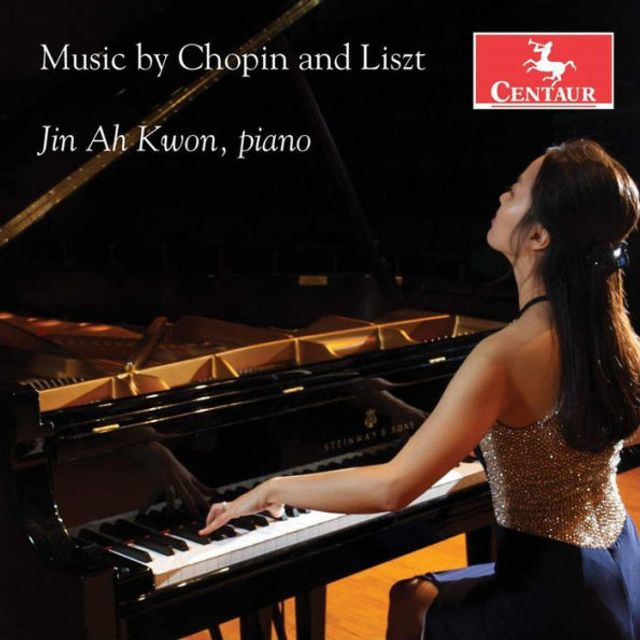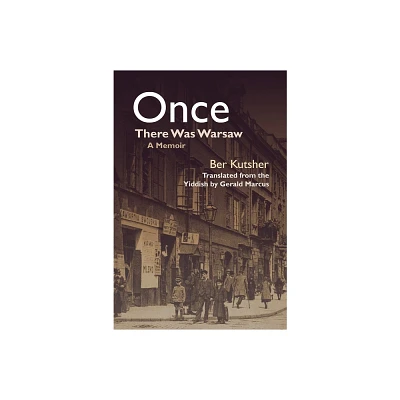Home
Music Chopin's Warsaw
Loading Inventory...
Barnes and Noble
Music Chopin's Warsaw
Current price: $44.99


Barnes and Noble
Music Chopin's Warsaw
Current price: $44.99
Loading Inventory...
Size: Paperback
*Product Information may vary - to confirm product availability, pricing, and additional information please contact Barnes and Noble
Music in Chopin's Warsaw
examines the rich musical environment of Fryderyk Chopin's youthlargely unknown to the English-speaking worldand places Chopin's early works in this context. Halina Goldberg provides a historiographic perspective that allows a new and better understanding of Poland's cultural and musical circumstances. Chopin's Warsaw emerges as a vibrant European city that was home to an opera house, various smaller theaters, one of the earliest modern conservatories in Europe, several societies which organized concerts, musically active churches, spirited salon life, music publishers and bookstores, instrument builders, and (for a short time) a weekly paper devoted to music.
Warsaw was aware of and in tune with the most recent European styles and fashions in music, but it was also the cradle of a vernacular musical language that was initiated by the generation of Polish composers before Chopin and which found its full realization in his work. Significantly, this period of cultural revival in the Polish capital coincided with the duration of Chopin's stay therefrom his infancy in 1810 to his final departure from his homeland in 1830. An uncanny convergence of political, economic, social, and cultural circumstances generated the dynamic musical, artistic, and intellectual environment that nurtured the developing genius. Had Chopin been born a decade earlier or a decade later, Goldberg argues, the capitaldevastated by warfare and stripped of all cultural institutionscould not have provided support for his talent. The young composer would have been compelled to seek musical education abroad and thus would have been deprived of the specifically Polish experience so central to his musical style.
A rigorously-researched and fascinating look at the Warsaw in which Chopin grew up, this book will appeal to students and scholars of nineteenth-century music, as well as music lovers and performers.
examines the rich musical environment of Fryderyk Chopin's youthlargely unknown to the English-speaking worldand places Chopin's early works in this context. Halina Goldberg provides a historiographic perspective that allows a new and better understanding of Poland's cultural and musical circumstances. Chopin's Warsaw emerges as a vibrant European city that was home to an opera house, various smaller theaters, one of the earliest modern conservatories in Europe, several societies which organized concerts, musically active churches, spirited salon life, music publishers and bookstores, instrument builders, and (for a short time) a weekly paper devoted to music.
Warsaw was aware of and in tune with the most recent European styles and fashions in music, but it was also the cradle of a vernacular musical language that was initiated by the generation of Polish composers before Chopin and which found its full realization in his work. Significantly, this period of cultural revival in the Polish capital coincided with the duration of Chopin's stay therefrom his infancy in 1810 to his final departure from his homeland in 1830. An uncanny convergence of political, economic, social, and cultural circumstances generated the dynamic musical, artistic, and intellectual environment that nurtured the developing genius. Had Chopin been born a decade earlier or a decade later, Goldberg argues, the capitaldevastated by warfare and stripped of all cultural institutionscould not have provided support for his talent. The young composer would have been compelled to seek musical education abroad and thus would have been deprived of the specifically Polish experience so central to his musical style.
A rigorously-researched and fascinating look at the Warsaw in which Chopin grew up, this book will appeal to students and scholars of nineteenth-century music, as well as music lovers and performers.










![The 15th International Frederick Chopin Piano Competition, Warsaw 2005 [Box Set]](https://prodimage.images-bn.com/pimages/5902547000688_p0_v1_s600x595.jpg)







